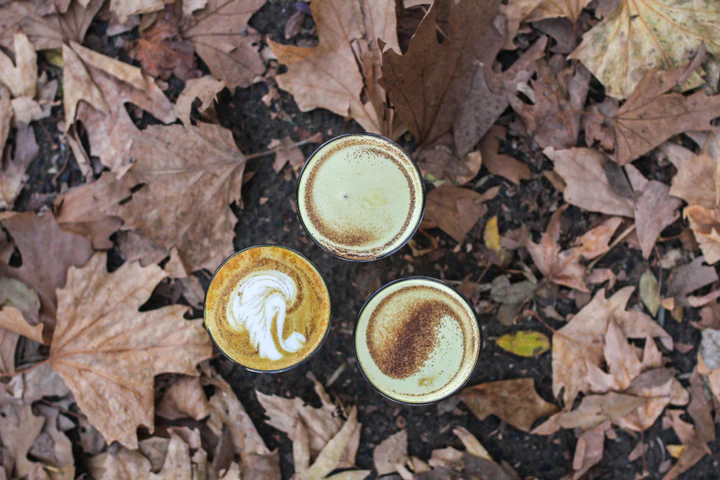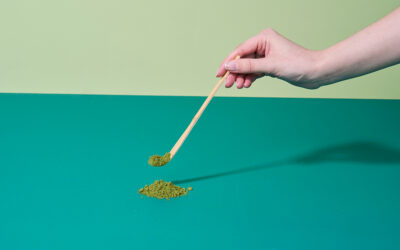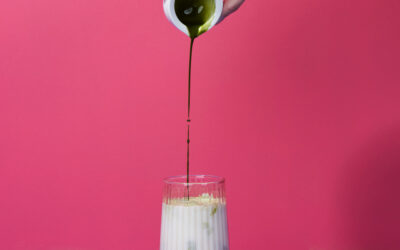I’m sure you’ve experienced nutrition controversy “It’s good for you… Ah, no wait, it’s bad for you” and you’re left wondering, do I or don’t I need or want this food item. Unfortunately, confusing controversies surrounding nutrition are often true because advise and fact may vary from person to person.
This month we decided to focus our attention on the C word that has a lot of controversy, confusion and conflict surrounding it … Caffeine.
Golden Grind is caffeine free, but why does this matter?
We are so excited to announce a guest contributor to our blog, the wonderful Kirsten Tuzée, founder of Mind for Body. Kirsten has shared her wealth of knowledge with us to provide the following information on caffeine; it’s benefits, it’s effects and the alternatives.

What is caffeine?
Caffeine is a naturally occurring compound found in the leaves and fruits of certain plants.
It’s classified as a stimulant drug because it stimulates the central nervous system (CNS) and brain.
Is caffeine bad for me?
It depends, some people have an increased tolerance to caffeine, for example, some people can have an espresso before bed without it disturbing their sleep, but there are others who have disturbed sleep if they consume caffeine after midday.
If caffeine doesn’t effect your sleep, don’t automatically presume you are caffeine tolerant. caffeine can effect us in many other ways which can reduce our optimal health.
How can caffeine effect our health?
Caffeine has long been used in physical and mental competitions as an effective ergogenic aid (a stimulate or competitive advantage aid). It is well documented that caffeine will have a stimulating effect on the CNS and reduce the sensation of fatigue, perception of work effort and even pain, in term, potentially increasing performance.
Although caffeine is widely accepted as an effective ergogenic aid, lets have a look at the potential effects of caffeine:
Anxiety and hypertension:
Caffeine mimics the chemical compound called adenosine. Adenosine is responsible for slowing your brain activity. When consumed, caffeine competes for adenosine’s place in the brain. Thus, if caffeine (increases brain activity) is present instead of adenosine (slows brain activity) it is clear to see why caffeine is a stimulant.
For those of us who suffer anxiety, hypertension and other increased heart rate related diseases, additional stimulation from caffeine could worsen symptoms.
Calcium and bone density:
Caffeine can potentially have a minor effect on your body’s calcium absorption (and other vitamins and minerals). As caffeine has long been considered a diuretic, if we consume lots of caffeine we can have an increased risk of excreting vital vitamins and minerals through our urine.
Vitamins and minerals are critical for optimal health and wellness. Calcium being especially important for our bone density.
Furthermore, today, with the heavily processed food industry and the amount of chemicals used in our farming, the amount of naturally occurring vitamins and minerals now present in our food supply is questionable. If we are consuming lots of caffeine, as well as consuming processed and non-organic foods, it would be interesting (maybe even scary!) to look at what kinds of vitamin deficiencies we are at risk of.
Hormone balance:
As previously mentioned, caffeine will have various effects from person to person, but also effect the same individual differently at various stages of their life as our hormones change. Caffeine has a direct impact on the functionality of our hormones.
When caffeine enters our body, it sends a message to our brain to activate our adrenal glands, which in turn, starts stress hormone production.
When stress hormones are released into our bloodstream, our heart pumps faster, our blood sugar and blood pressure levels rise, making us feel we have more energy and makes us feel more alive.
In response to our heightened blood sugar levels and blood pressure, our muscles contract, making us feel we are ready to take on the day! And thus, the reason some use caffeine as an ergogenic aid!
But this is where we might need to be careful. When stress hormones are in our bloodstream, we are in a stress response state, we are in fight or flight mode. Sure, we might feel we are more alive and ready to take on the day, but to be in this state, falsely (due to caffeine and not a real life altering threat) is not a good thing, especially if this is consistent over the course of the day, most days.
When we are in a state of stress response, the regular functioning of many other body functions gets put on the back burner to deal with the false threat. Stuff like metabolising the vitamins that give you real, sustained energy, and delivering minerals to your skin to make it glow. Long term stress like this can disrupt the reproductive system, and your ability to burn fat.
Fat burning ability:
The stress response increases the amount of insulin in our bloodstream. When insulin is present, glucose is the primary energy source for our bodies, meaning our body doesn’t use energy from our fat stores.
If you are having several coffees (caffeine) at several times over the course of the day, you’re likely to have a reduced fat burning ability and may be storing fat unnecessarily.
How long does caffeine stay in the body?
Within 30 – 60 minutes of drinking a caffeinated beverage or food, it will reach peak concentration within the bloodstream. Is typically takes 4-6 hours for the effects to wear off.
What foods/drinks are highest in caffeine?
Brewed and drip coffee, instant coffee and milk based coffees, cola beverages and soft drink, chocolates, energy drinks and some teas. Some teas, like green tea, naturally contain an ingredient called theanine which neutralizes the effects of caffeine.
Am I having too much caffeine?
As I have mentioned, everyone’s caffeine tolerance is different.
Maybe it would be beneficial to see how you go without caffeine for a while, or reducing your intake of it? Below are some scenarios where I would recommend going without caffeine for a while to see if you notice any positive changes.
If you have a healthy diet and lifestyle and:
- suffer from anxiety, heart related problems, or any other mental health condition.
- feel lethargic, like you might not be absorbing vitamins and minerals.
- feel like you could do with balancing your hormones, i.e. you suffer badly from PMS, PCOS, mood swings, hormonal acne etc.
- you struggle with managing your weight.
If you remove caffeine from your diet for at least 8 weeks and didn’t notice any difference, maybe it doesn’t effect you the way it does others, so go back to enjoying it in moderation.
However, if you rely on caffeine to increase your energy and believe this is your main reason for consumption, I would suggest trying other methods to increase your energy such as eliminating processed foods from your diet and eating mostly whole foods, drinking more water, exercise regularly, reduce your stress and get at least 8 hours sleep each night.
My favourite coffee alternatives:
I love a morning coffee, and I still have one now and then, but for the last 4 months I have reduced my intake of it enormously in an effort to try and balance out my hormones. Since doing so my skin has really improved and I do feel I have more energy, especially around certain times of the month. Based on this, I think I’d probably be somewhat sensitive to caffeine and better off without daily intake.
Instead of coffee, I am loving:
Golden Grind Turmeric Lattes – if you haven’t tried one yet, do yourself a favour. Seriously amazing with huge health benefits! I have mine with soy or coconut milk.
Coconut & lime infused green tea (while some teas, especially green tea, contain caffeine, they also contain something called theanine which balance out the effects of caffeine).
Chai teas and lattes – be careful of the sugar content in the powdered latte mixes, it’s maybe best to make your own from spices (but then again, if that’s really the only sugar you consume in the day – enjoy it!).
Kirsten – Nutritionist, Personal Trainer & Founder @mindforbody, www.mindforbody.com.au
Feel free to contact Kirsten here – [email protected]






